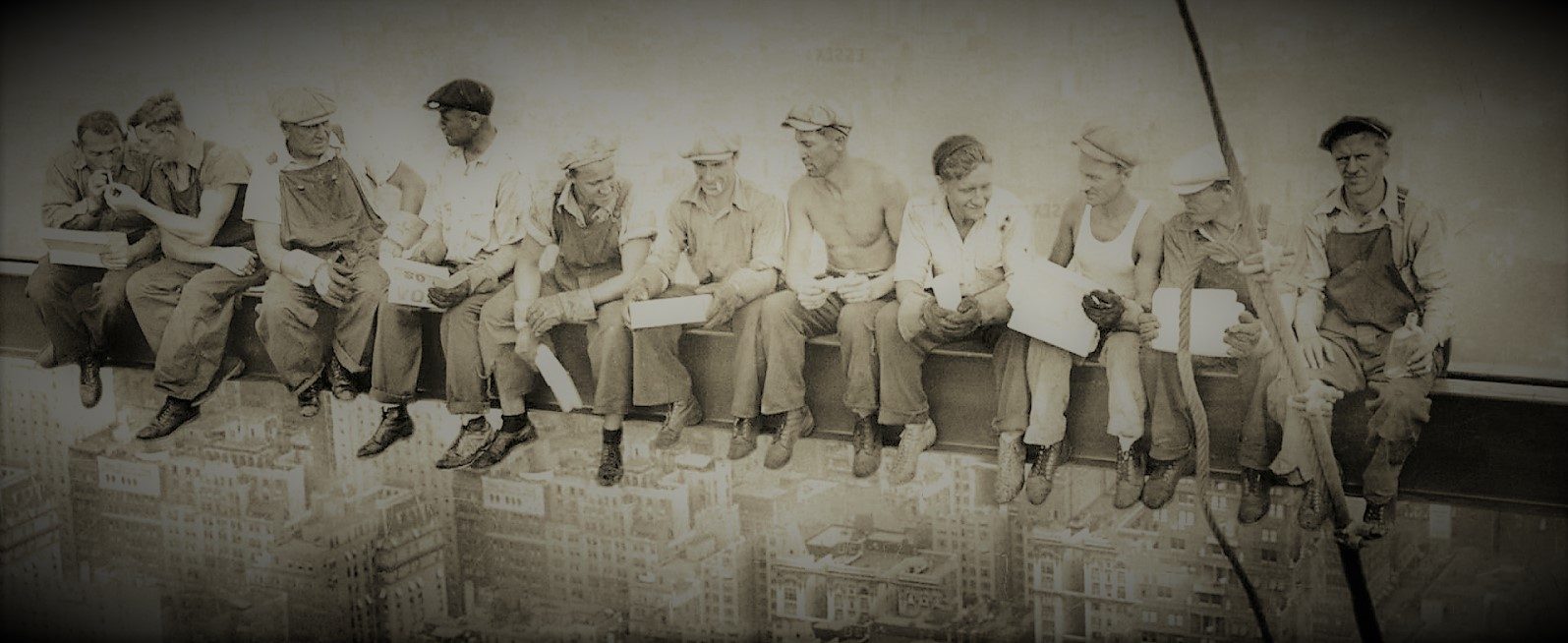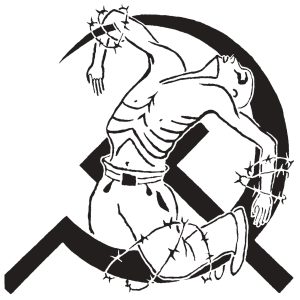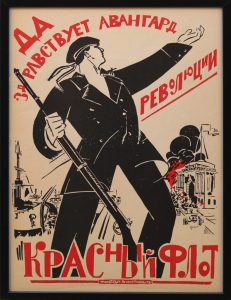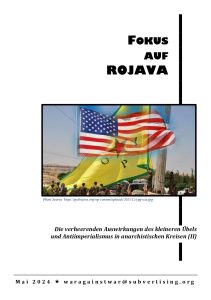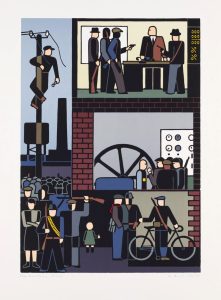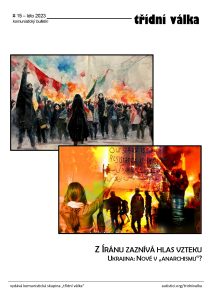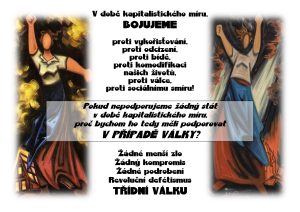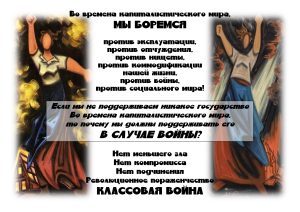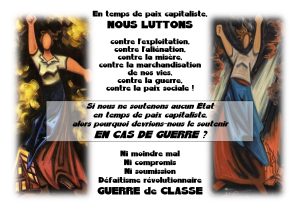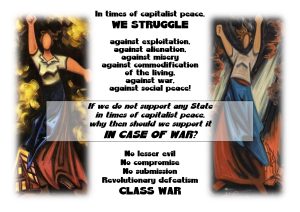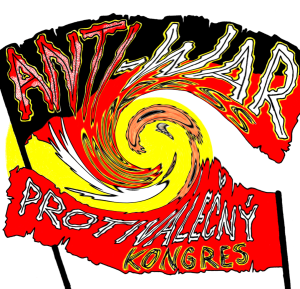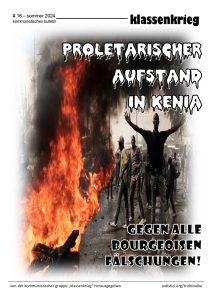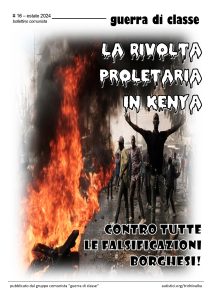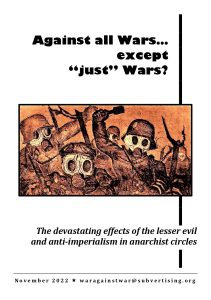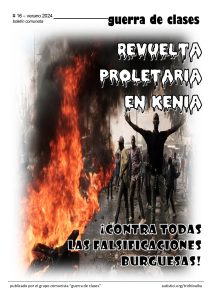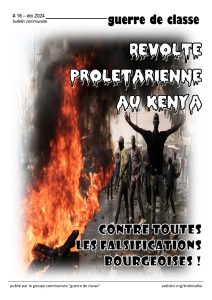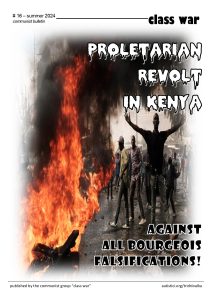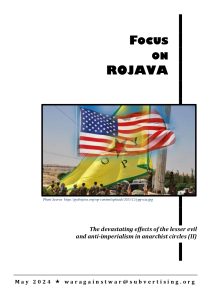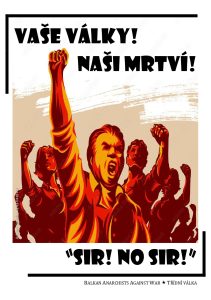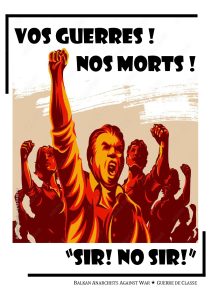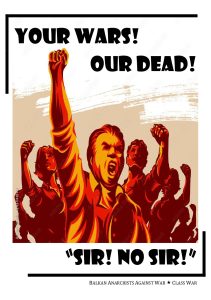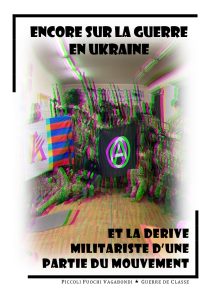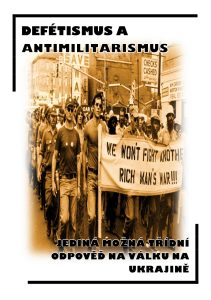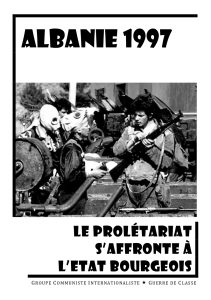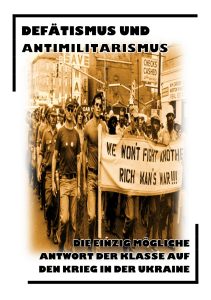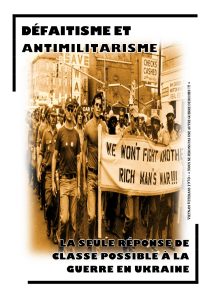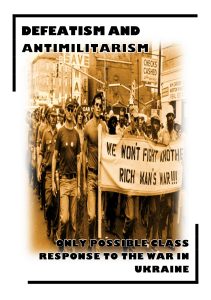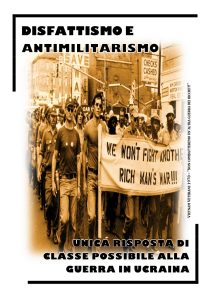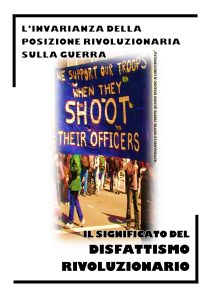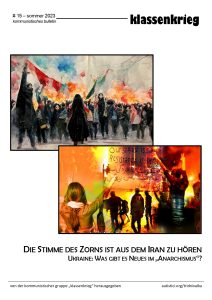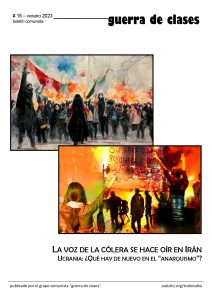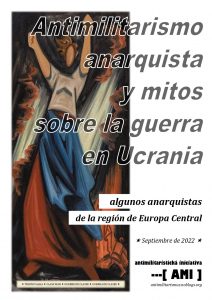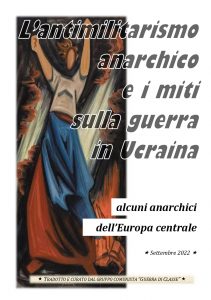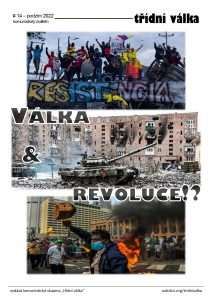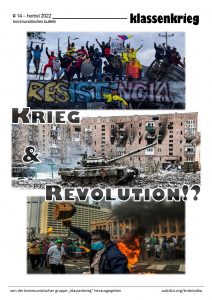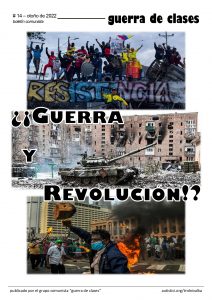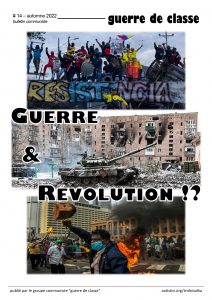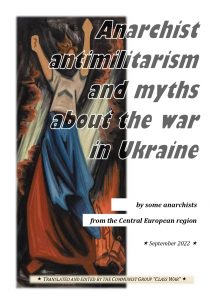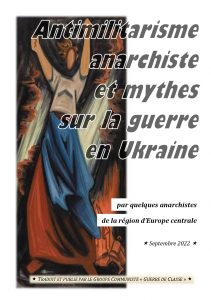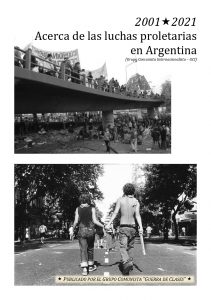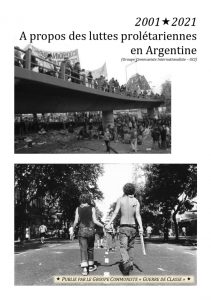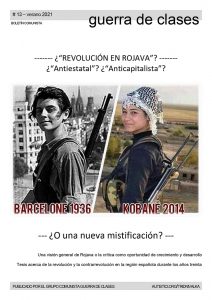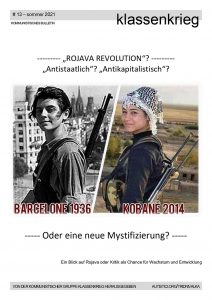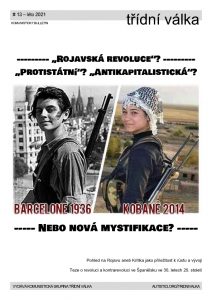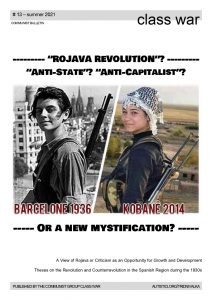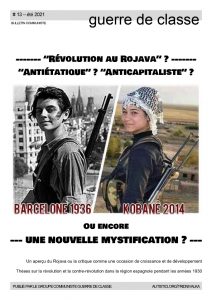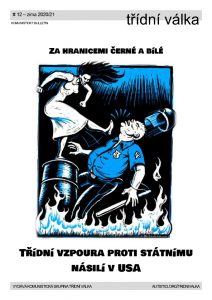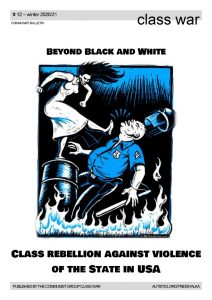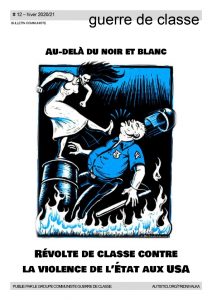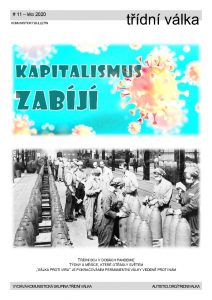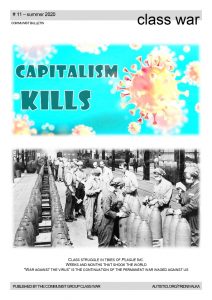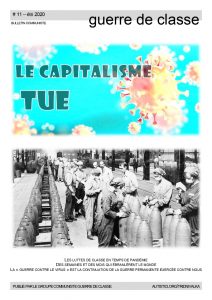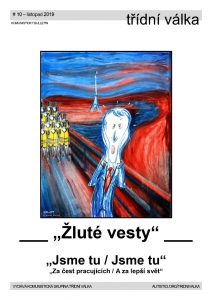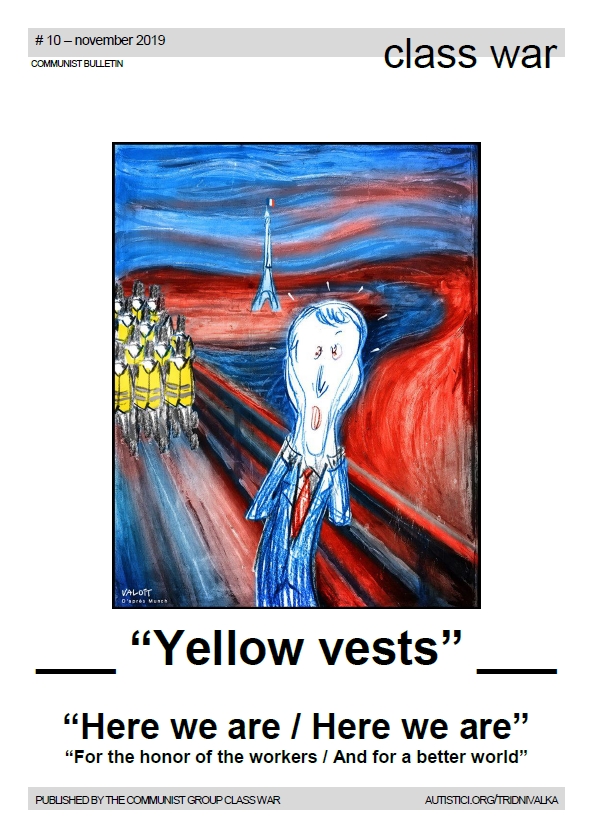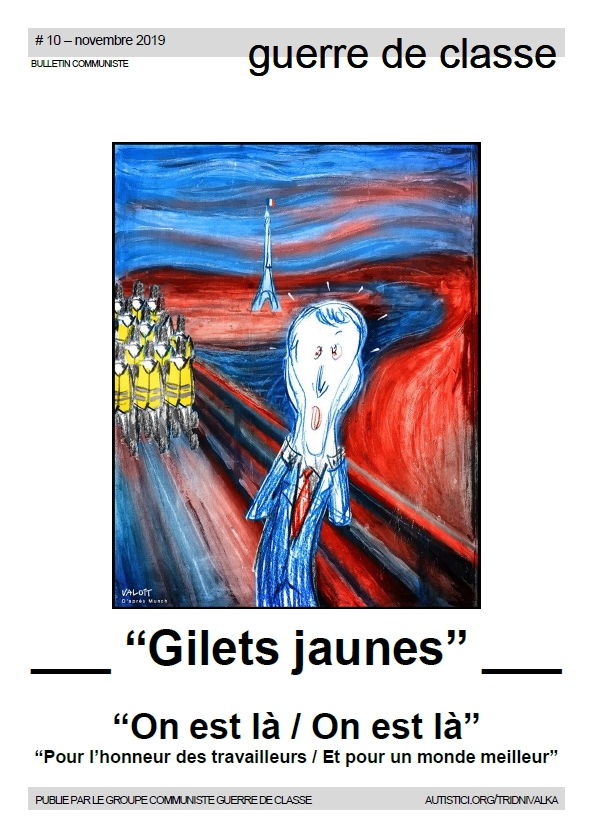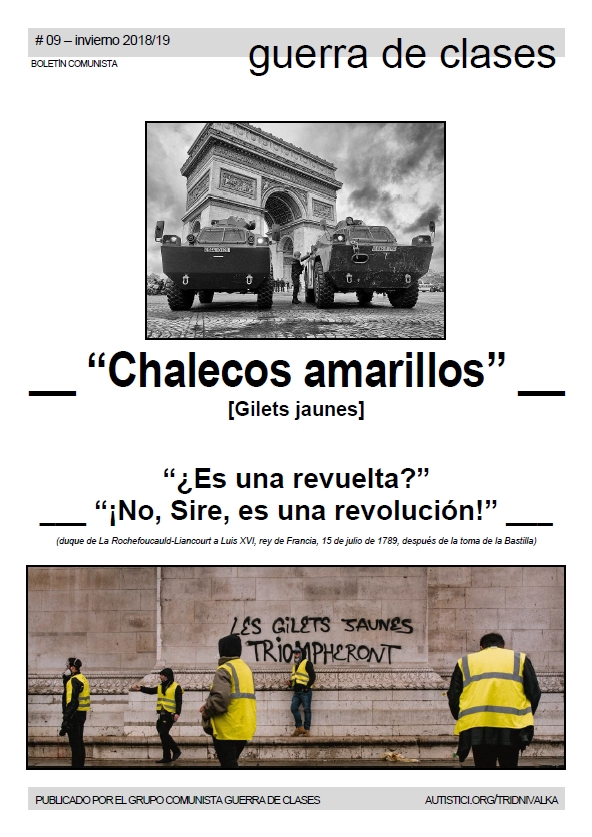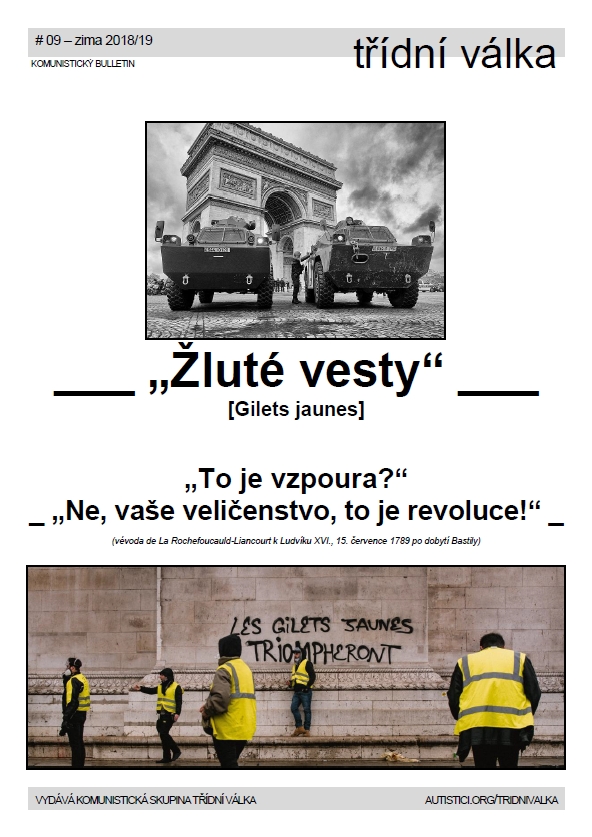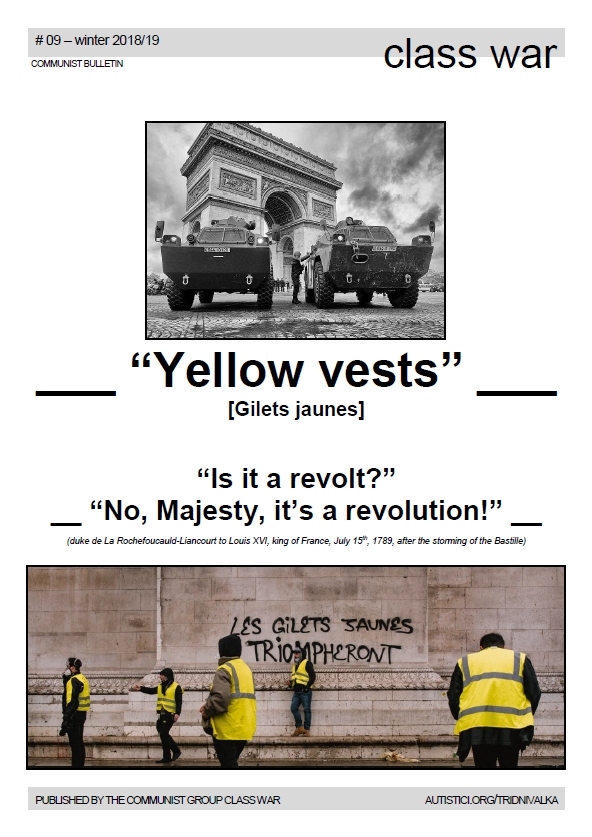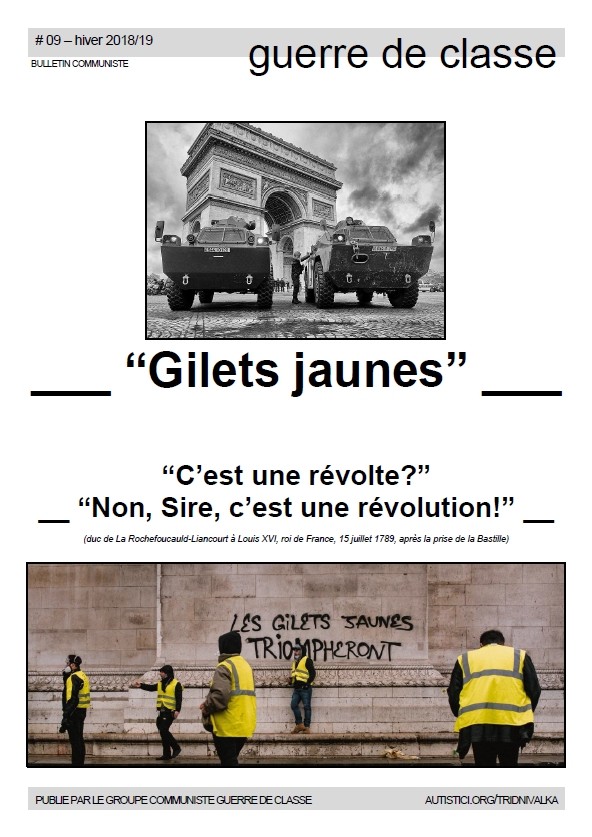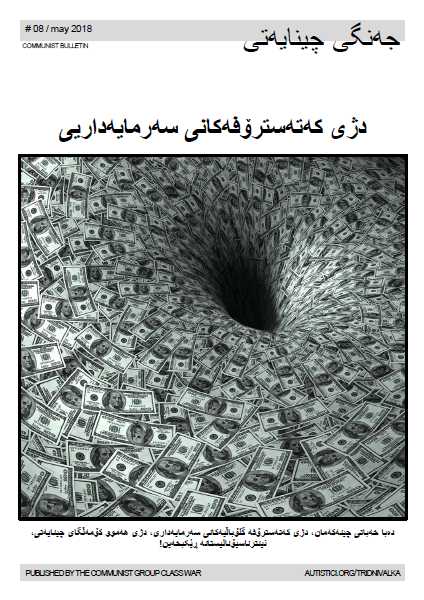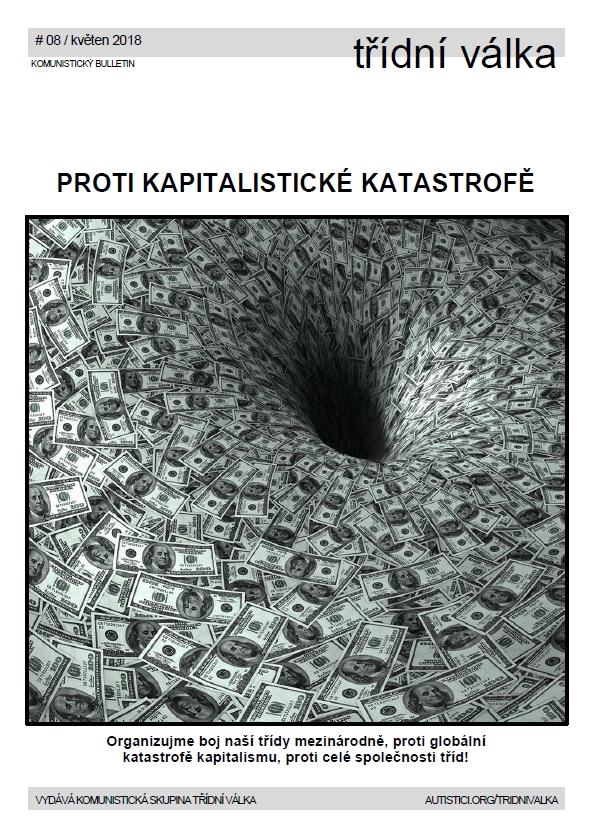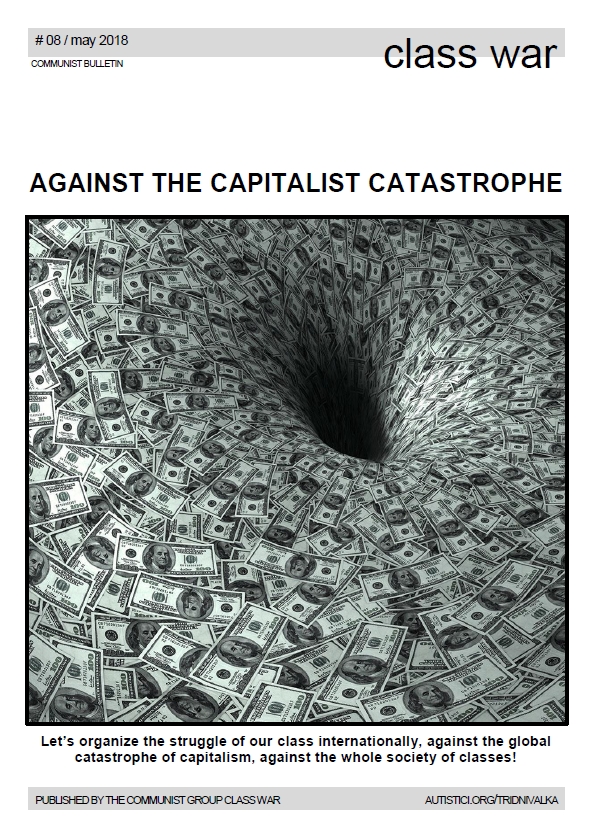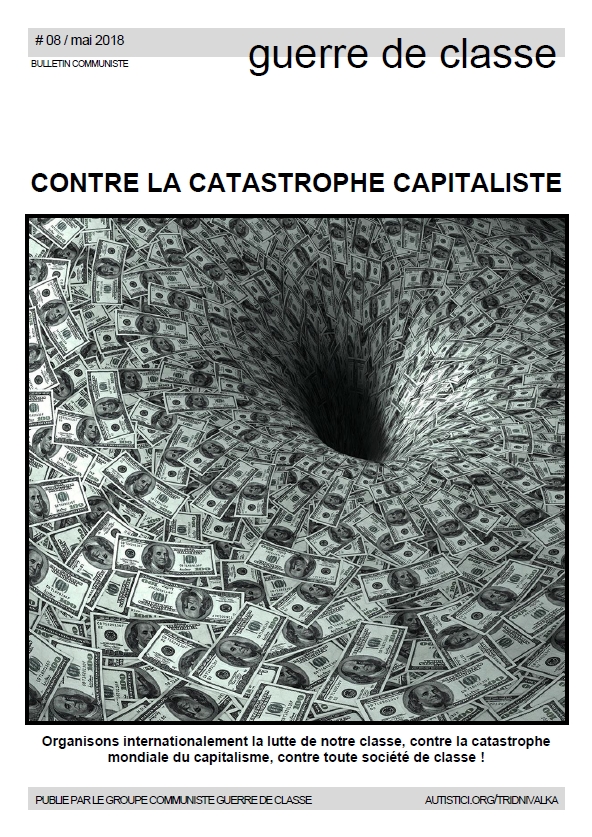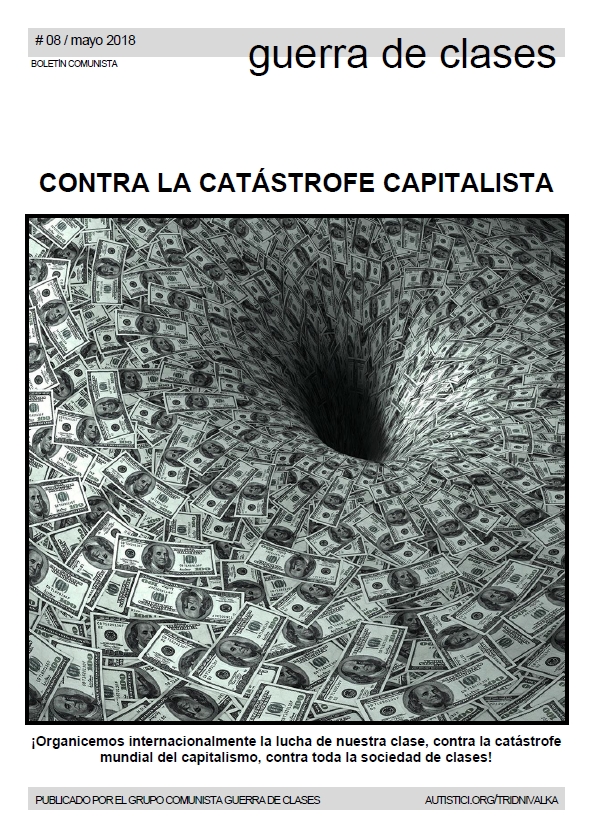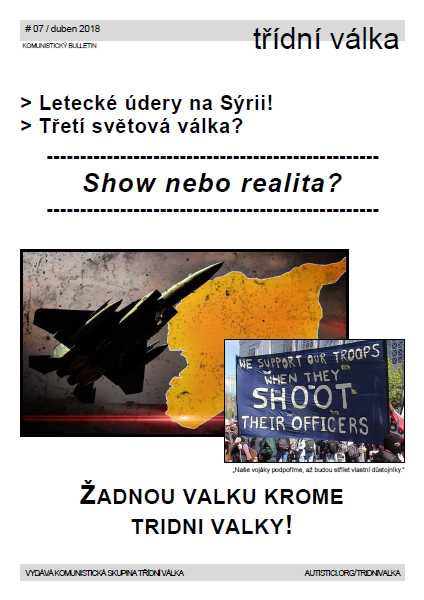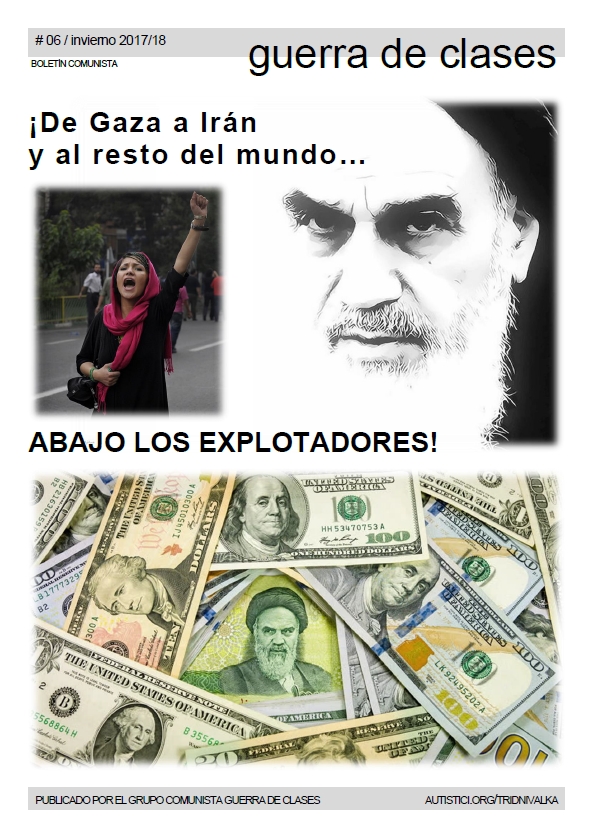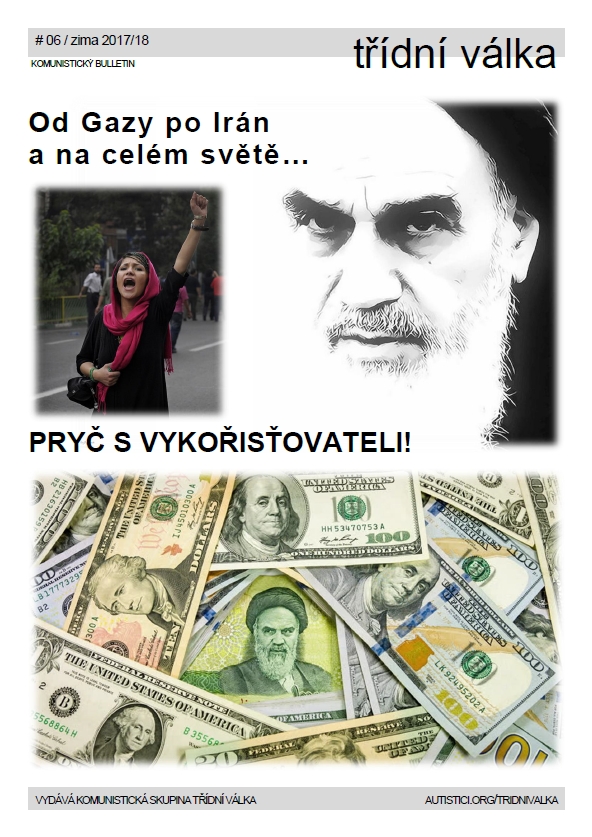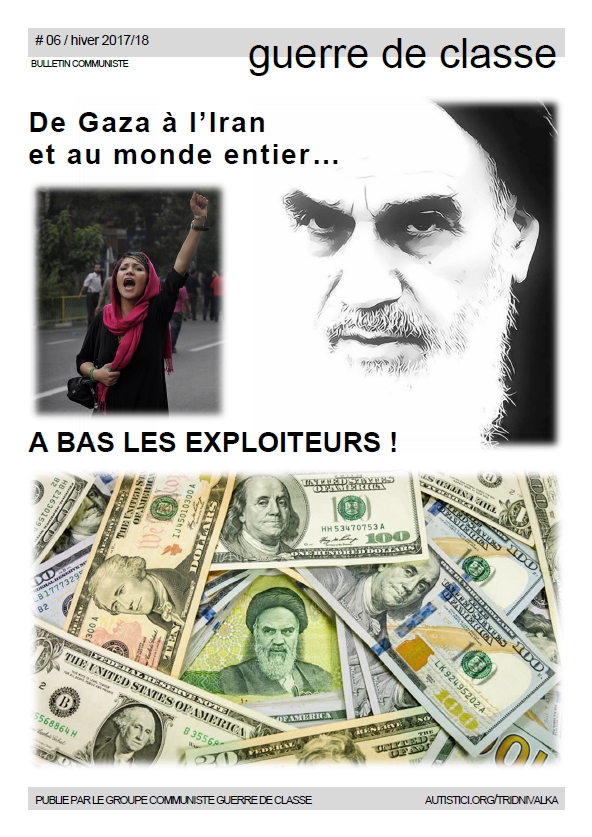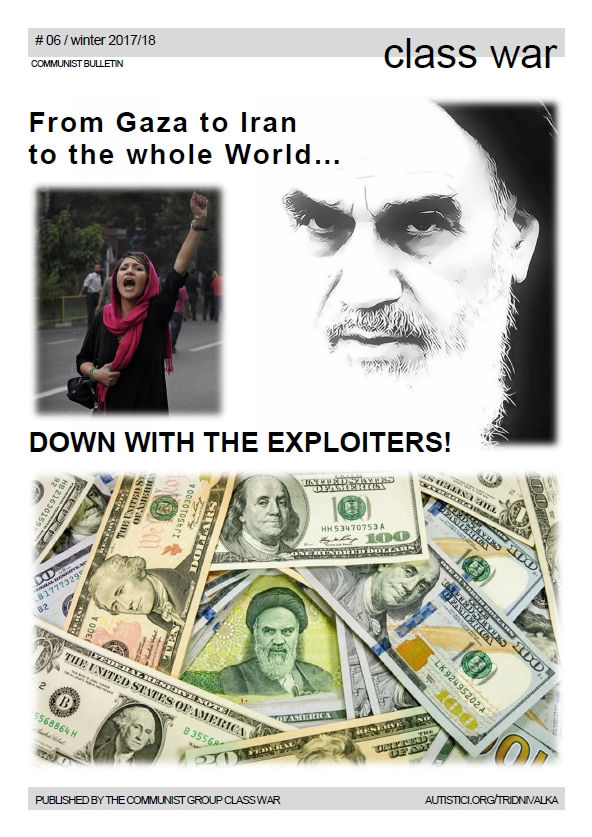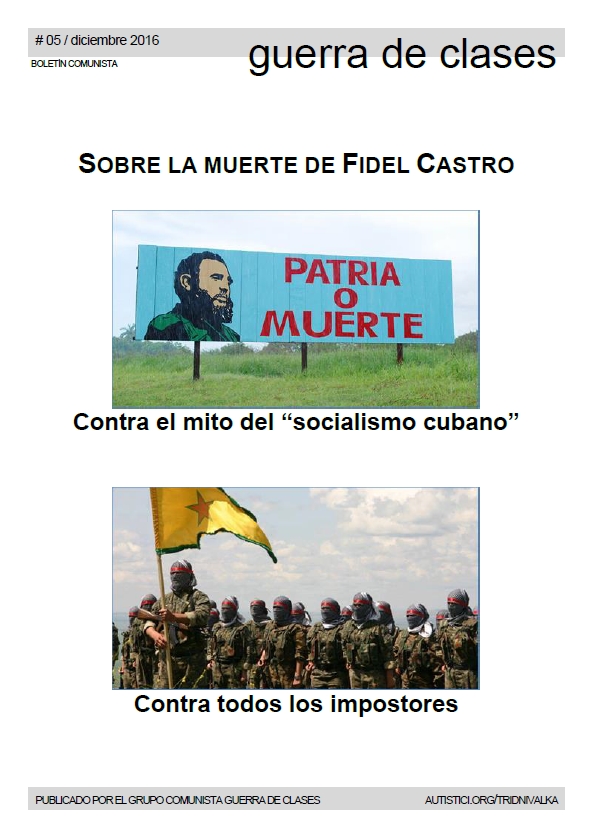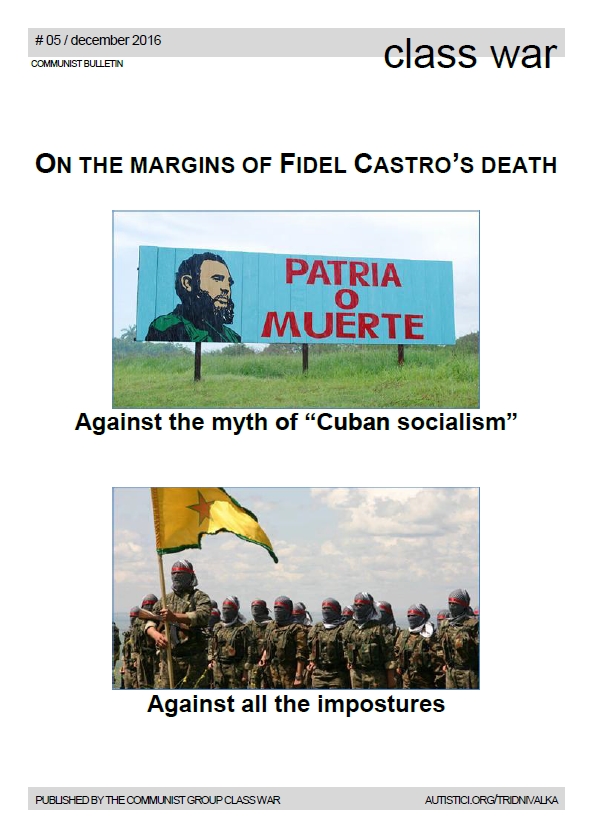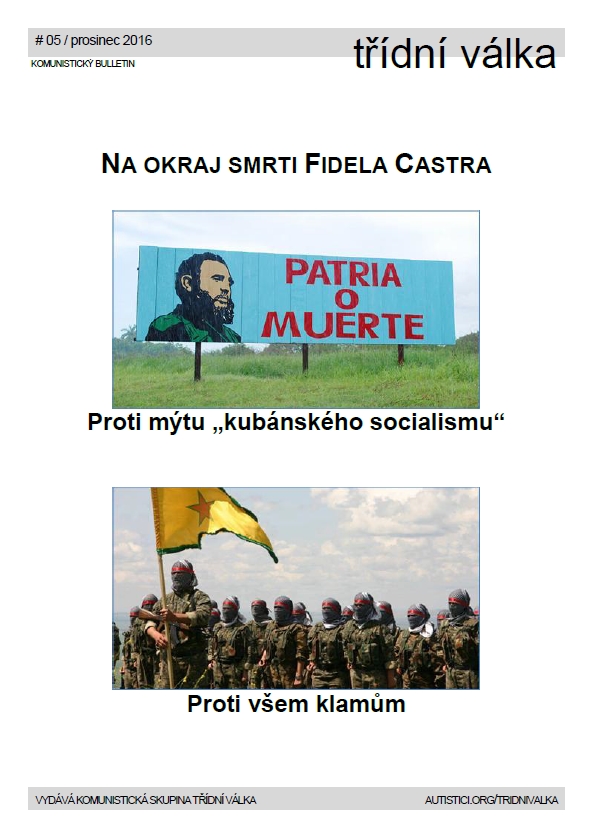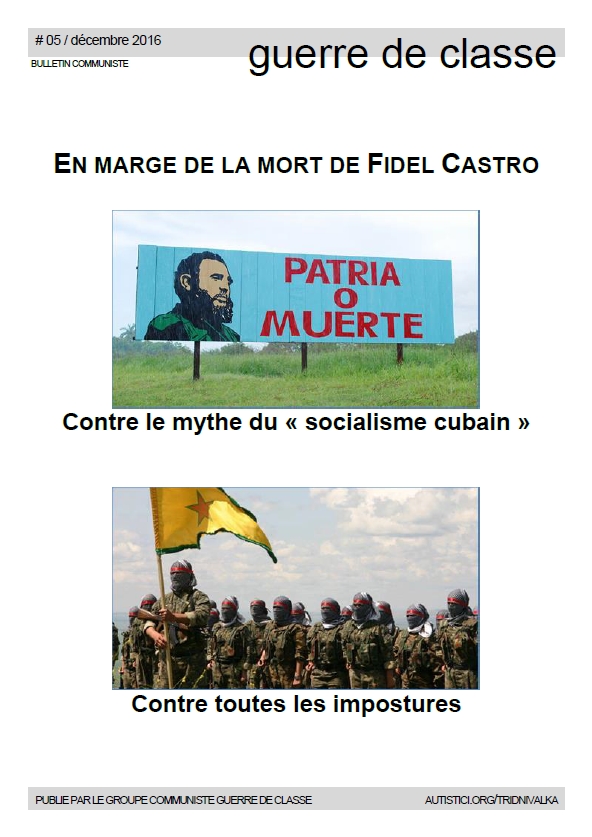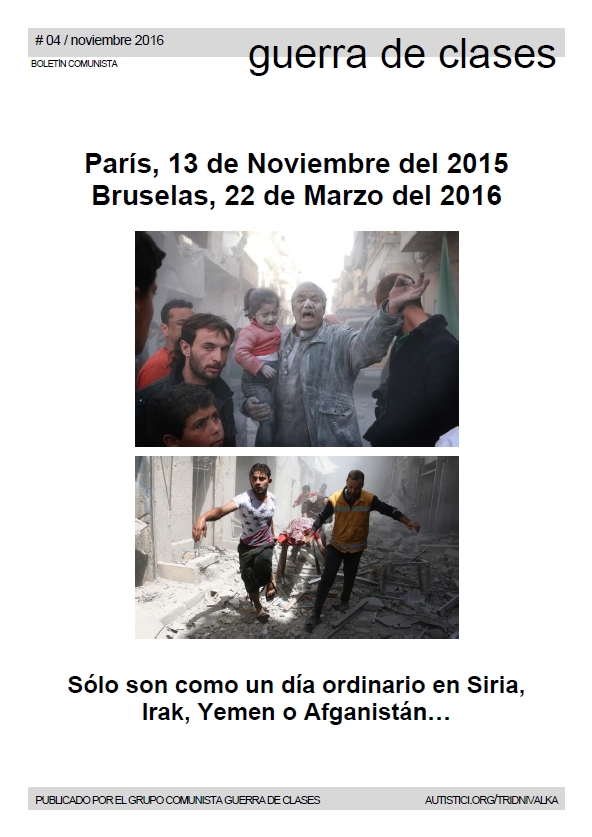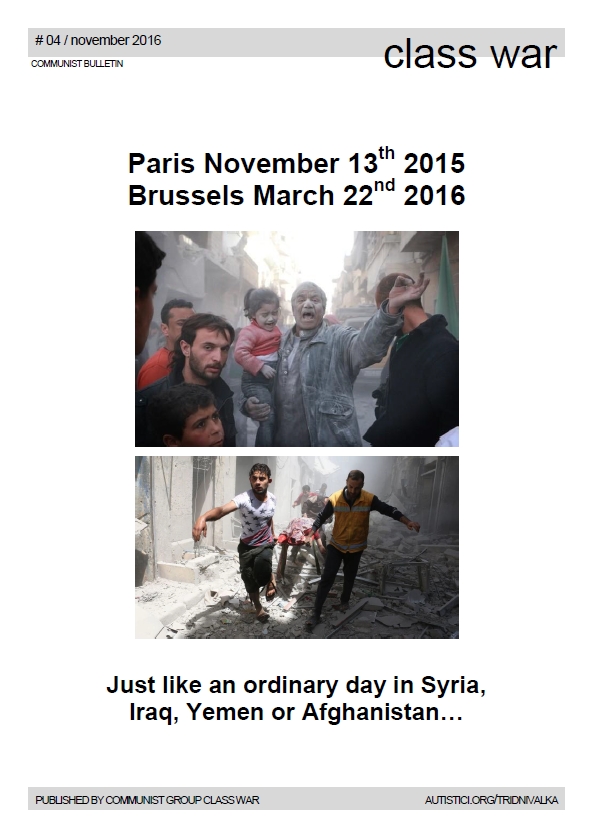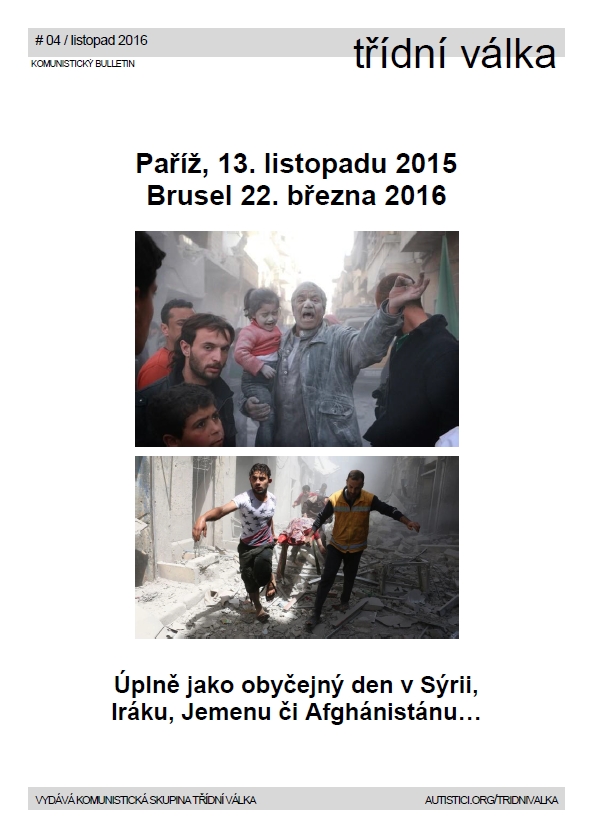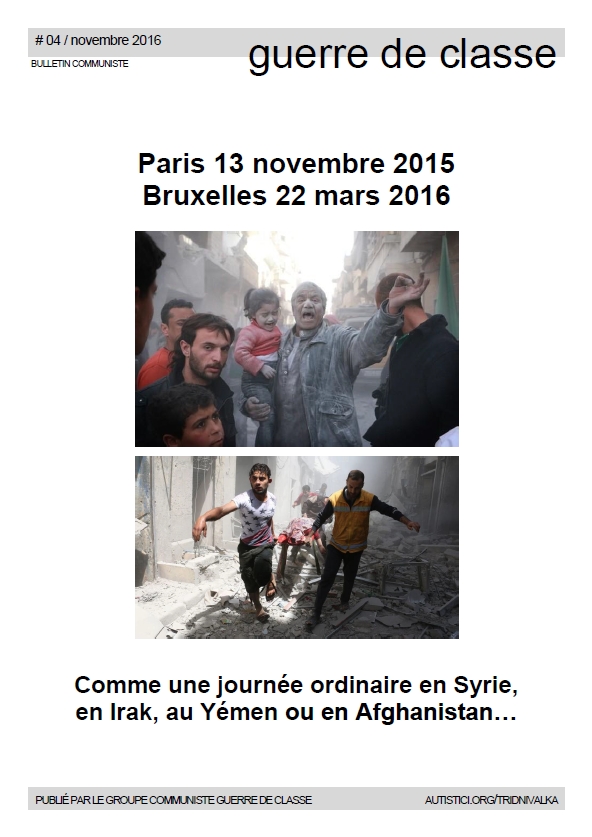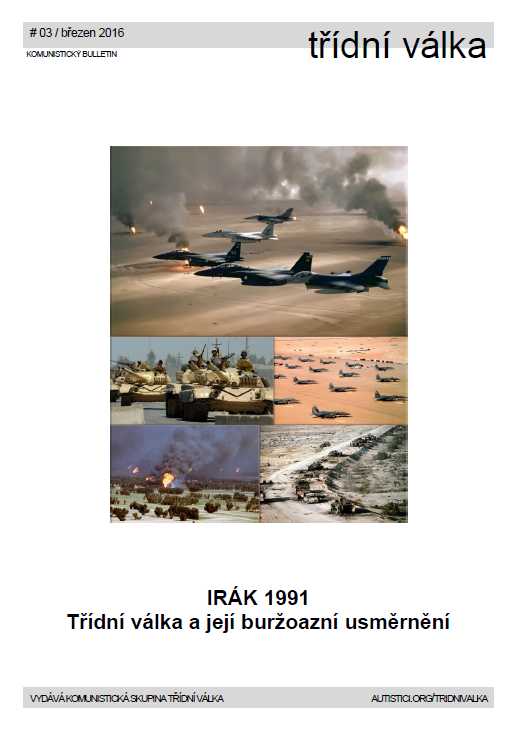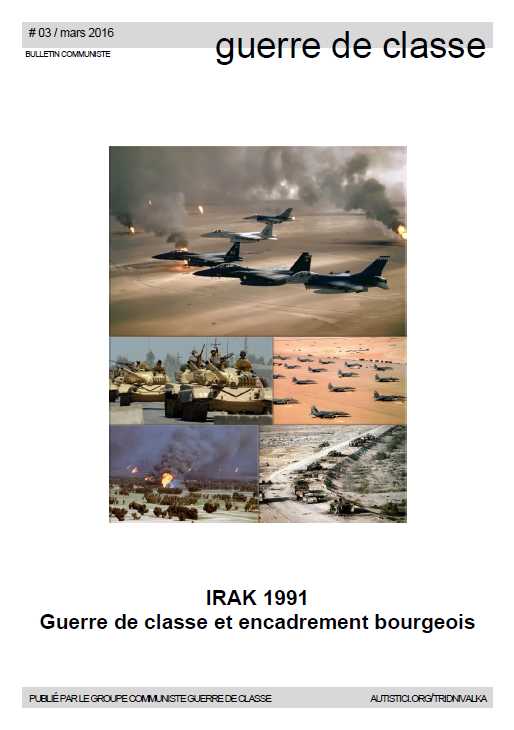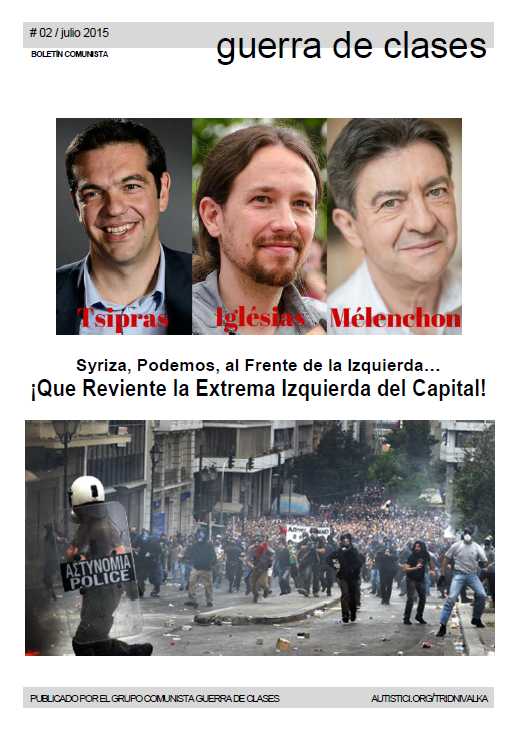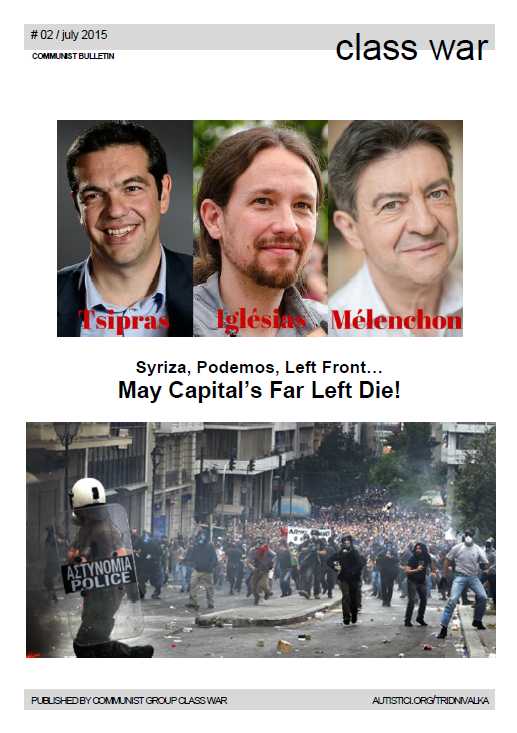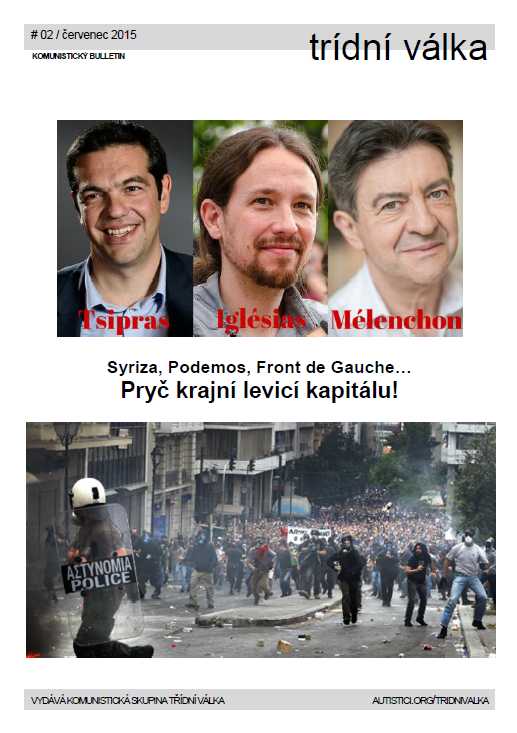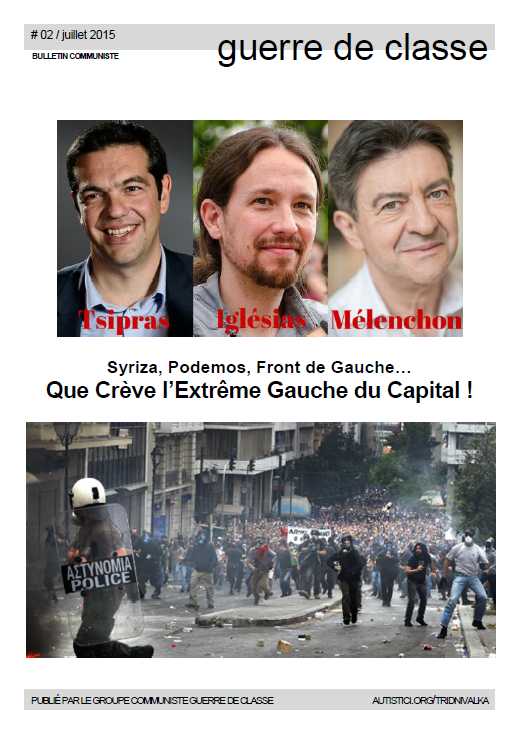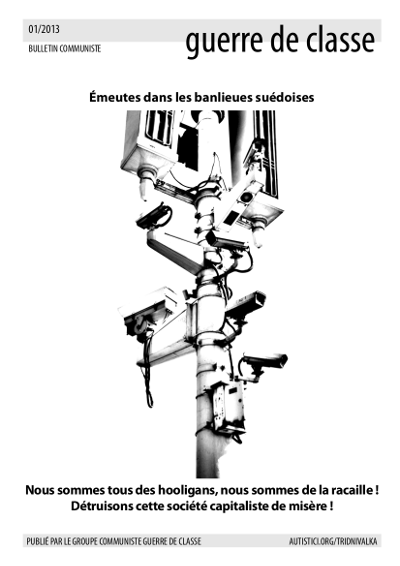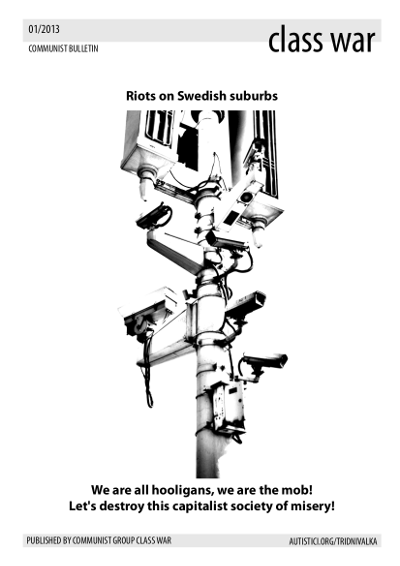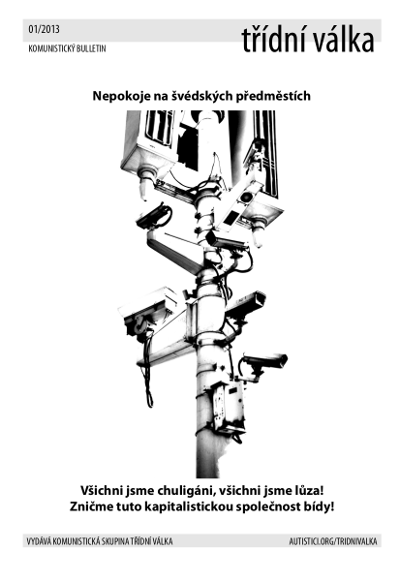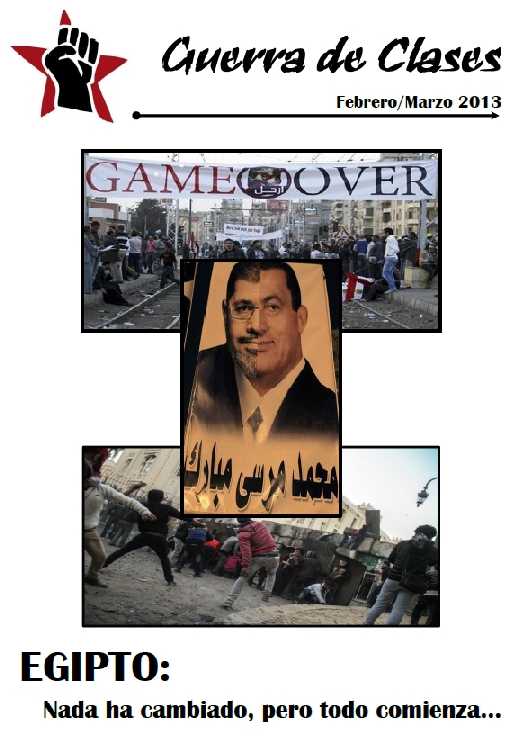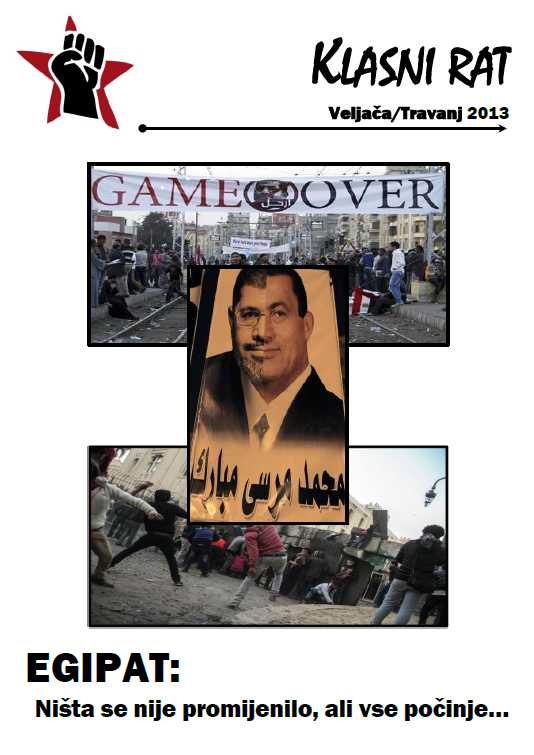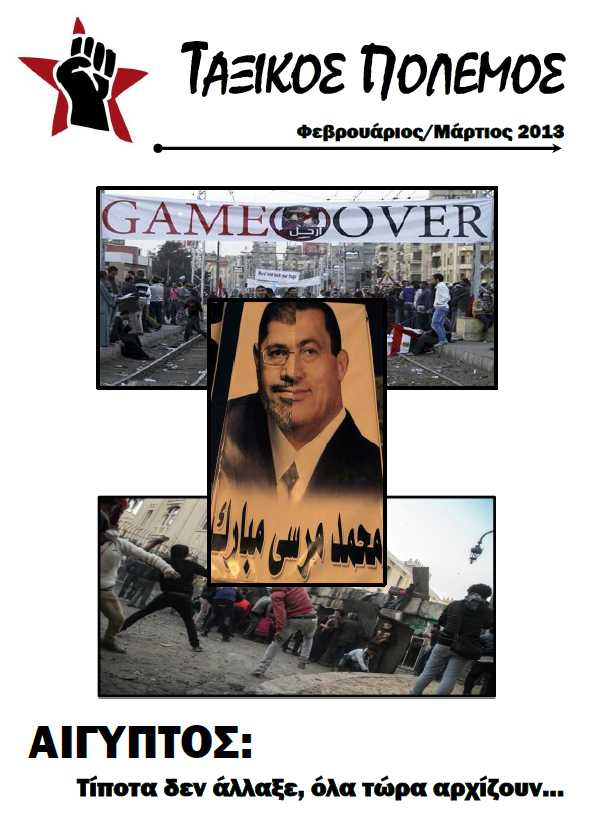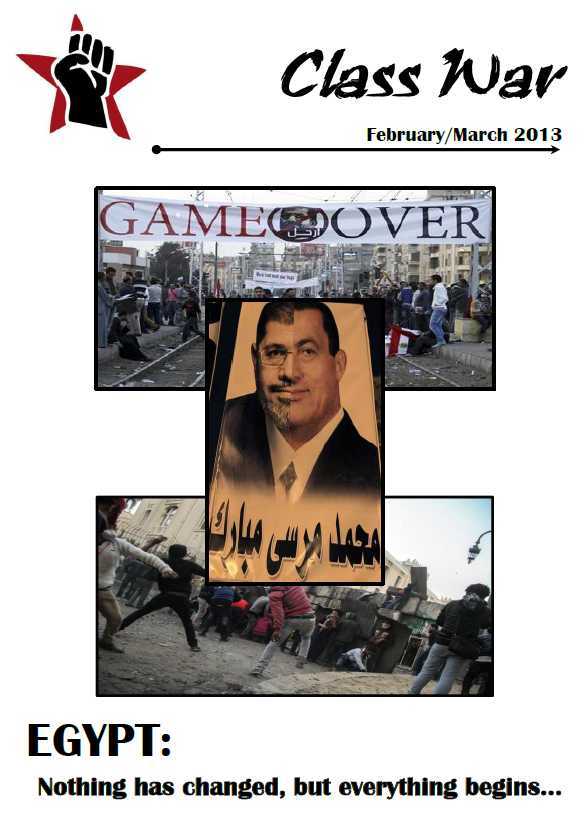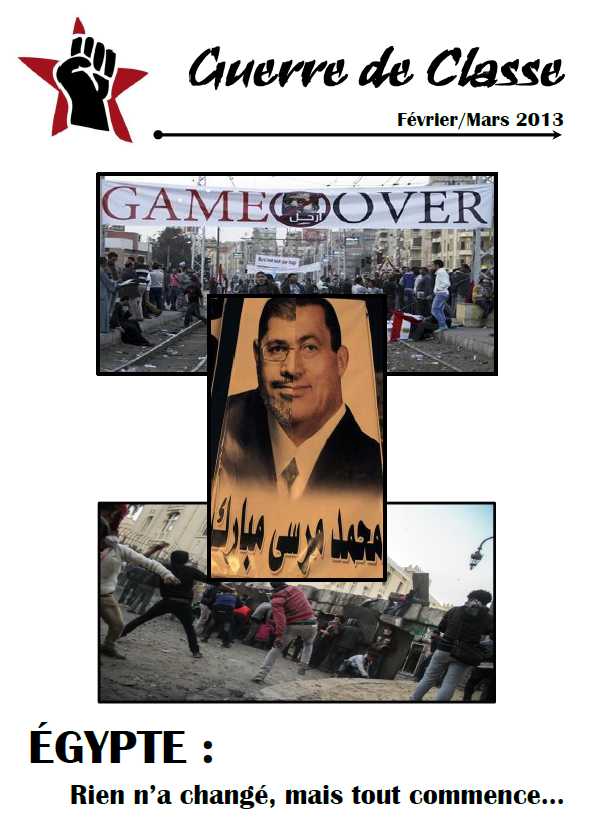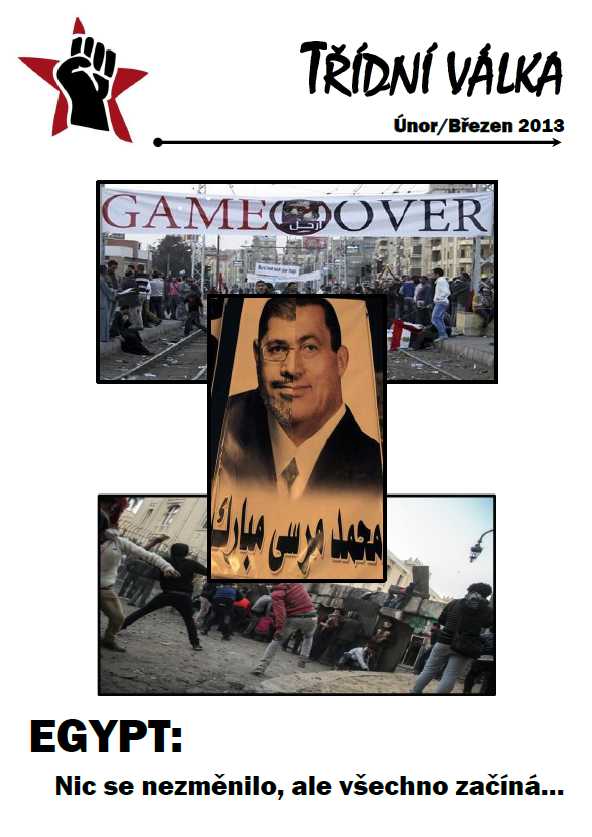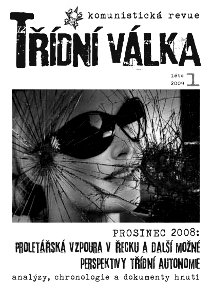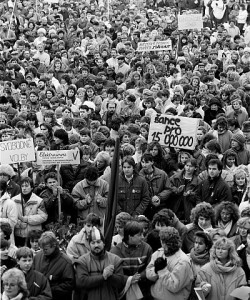 In the same way as ten years ago, the Czech bourgeoisie today, on the occasion of the twentieth anniversary of the “Velvet Revolution”, commemorates its victorious struggle for “freedom and democracy”, its triumphant campaign against the proletariat. In the same way as ten years ago, and for that matter in the same way as every year around this time, almost on every step and in every moment we can “indulge” in memories of this exploiters’ triumph over the exploited. The triumph, which is even sweeter because the defeated participated on their own defeat with a kind of naive enthusiasm and many will zealously celebrate their own beating even this year.
In the same way as ten years ago, the Czech bourgeoisie today, on the occasion of the twentieth anniversary of the “Velvet Revolution”, commemorates its victorious struggle for “freedom and democracy”, its triumphant campaign against the proletariat. In the same way as ten years ago, and for that matter in the same way as every year around this time, almost on every step and in every moment we can “indulge” in memories of this exploiters’ triumph over the exploited. The triumph, which is even sweeter because the defeated participated on their own defeat with a kind of naive enthusiasm and many will zealously celebrate their own beating even this year.
The Czech bourgeoisie doesn’t whoop it up alone. The worldwide bourgeoisie cantily dances in a dancing hall of the history along with the national one, while there is one and only banqueter sitting at the table – capital, which is the real and sole victor of all the revolutions in the late 1980s and early of 1990s.
The proletariat has no reason to celebrate, even if it is probably not aware of its defeat and even if it moreover considers it as its victory, like before it was not fully aware of where its activity was going to and why, like it was unable to discriminate what provided its movement with wings and what was on the contrary its ball and chain, and like it was not often aware of both very existence of the movement and of itself as a class.
I.
However, we can speak about the proletariat and its defeat only at a certain, let’s say historical, level of abstracting the events of 1989. This defeat actually didn’t consist in repressing the class movement, because in the Eastern Bloc at the end of the 1980s the proletariat in no way constituted itself as a class against capital and therefore it was not even defeated as a revolutionary force. There was neither a case of social revolution, nor a case of a situation opening an infinite number of possibilities for further development including the immediate intensification of proletarian struggle. It was the exact opposite.
Economic and political liberalisation, that is to say restructuring of capital and its management, which was the real meaning of democratic “revolutions” in the Eastern Bloc, was in fact contained in the very activity of the proletariat. In the same way as the Stalinist ruling class believed during the fifties that it was really building socialism and workers’ state, because it had eliminated the old private-ownership based bourgeoisie and production relations, it had temporarily subjugated the law of value and it went on developing means of production and capital in a socialized way, to some extent the proletariat also trusted this Stalinist experiment as it considered it as de facto fulfilment of its pre-war social democratic ideals. Not even the fact that our class all around Eastern Europe rapidly clashed with those newly established regimes over the rate of its exploitation and these clashes were repeated almost periodically, resulted in a revolutionary refusal of the proletarians’ position within the Stalinist model of capitalism.
Therefore, it was not only the bourgeoisie, limited by the Stalinist shell in its possibilities to realize a sufficient rate of profit, who felt the need to reform capital at the end of the 1980s. The proletariat did too. A certain awareness that the then situation was “blocked” and the idea of solving it out by a reform existed both on the side of the ruling class and on the side of labour, to the extent to which it existed rather as a class for capital than a negation of its own being, as a class against capital. Bourgeoisie didn’t evil-mindedly set up ideological tricks and traps in order to prevent the proletariat from becoming conscious of itself and claiming its own historical programme. It was a historically specific interaction of labour and capital, what led to a social situation in which our class acted rather as a labour for capital and what produced its defeat. It was not the communist revolution what was on the agenda in 1989, but just a liberal reform.
II.
Nevertheless, one of noticeable characteristics of the then historical motion was, in all the countries of the so called Eastern Bloc, dissatisfaction and anger of the working class against its living conditions and especially against a perspective of their further worsening. Against a perspective which was slowly but surely turning into reality as the need to restructure production and to open a way for more effective valorisation of capital freed from obsolete and counterproductive regulations of “socialist” economy became more and more obvious. A perspective which was coming hand in hand with Perestroika and other reforms which brought in their train increasing rate of exploitation and removal of the unspoken inter-class compromise: “we pretend to work and you pretend to pay us”. In different countries of the Eastern Bloc this dissatisfaction materialized in different ways. While in Romania, for example, it turned into a mass proletarian explosion, in Czechoslovakia this explosion existed only as in reality very limited, even if hypothetically possible, eventuality, which the bourgeoisie and its allies initially quite worried about .
III.
Destruction of Stalinist economic and political management of capital had of course also other causes than just inner problems of the regimes. The collapse of the Stalinist model was also imposed by increasing interconnection of Eastern Bloc countries with the world market, which revealed this type of administration of capital as completely non-prospect archaism sinking into always deeper crisis.
Following completion of its reform, the bourgeoisie topped off its victory through proclaiming “the end of history”. This was to describe that the world had run out of all possibilities to change itself, because all the chances had failed. “The end of history” should mean that the time, when the working class was in its youthful levity trying to get rid of its wage chains, is over, and that an adult and reasonable proletariat came back under wings of its exploiters after it had understood that all of its previous attempts to escape the capital had failed, as it was elucidated by all the Gorbatchevs, Walesas and Havels. “Hasn’t the proletariat experienced the life in ‘communism’? Hasn’t it understood that it is just an atrocity? Wasn’t it finally eliminated by proletariat’s own activity?” This “end of history” has been a part of ideological mystification of history designed for managers of capital to grasp and justify their domination. Stalinist bourgeoisie called the exploitation inflated to the utmost degree a realization of “socialism” and it described the repressive apparatus which was supposed to organize this exploitation (and which repressed several waves of class struggle) as the “workers’ state”. The new bourgeoisie proclaims Stalinist capitalism to be criminal communism, which has imparted to the reform of the capital relation begun in November 1989 a revolutionary aureole and has made the best representatives of the transformation proper mythic heroes.
IV.
As we have already said, proletarians have no reason to celebrate, no matter what they think. And that is why the current bourgeois ado about this “revolution” is worthy not only of our disdain, but especially of our attention and critique. Not only because we consider it necessary to oppose the disgusting propaganda rewriting the history according to the needs of the ruling class. Not only because the fall of the Eastern Bloc poses a serious challenge for development of the revolutionary theory, for a more thorough grasping of capital as a social relation and all further implications. But also in the context of today. Twenty years ago the proletariat helped capitalism to get over one of its periodical crises through accepting in the name of democracy all that what it had been refusing (in different countries in various ways) when it was imposed on it in the name of “socialism” – worsening of living conditions, increasing rate of exploitation, unemployment, poverty, slow dying under the dictatorship of capital… Today, in the time of another crisis, our class can once again help capitalism to survive at our expense or it can ring its neck. The proletariat can get drunk at the party celebrating its defeat, or it can burn the banquet down.
V.
It is not in our possibilities to write down everything, what should be said about the events in Czechoslovakia and the entire Eastern Bloc in the late 1980s. Not even if we limit our interest in accord with those above sketched theses. Nevertheless, the history from the point of view of the proletariat is not being written in order to be published in thick volumes of university publishing houses, but to become a part of its historical programme, to become a clue for its further struggles. That is why we would like to publish in the near future as a contribution (even if not a complete one) to history of our class several texts dealing with this issue: our own devoted to Czechoslovakia and some translations devoted to other countries of the Eastern Bloc. All of them have one thing in common – the class point of view, although even in this framework different interpretations and conclusions can appear.
As we have already mentioned, the proletariat didn’t constitute itself as a class against capital in Central and Eastern Europe at the turn of 1980s and 1990s. Thus, from its activity or rather inactivity we can hardly draw some real lessons what our class should have done or shouldn’t have done. The merit of these texts is rather a development of theoretical instruments which will allow us to move in the class analysis of the history further. In the same way, these contributions are worthwhile for opposing bourgeois propaganda and interpretation of history with a class view of events and their interpretation, which is not based on ideology, but on analysis of inner contradictions of capitalism – labour and capital.
Class War group will be obviously glad for any attempt to reveal real essence of that historical motion made by any militant or a group who would like to share it with us. All that in defiance to all senile dissidents, bootlicking academics and decent citizens!
Class War Group
January 2010
